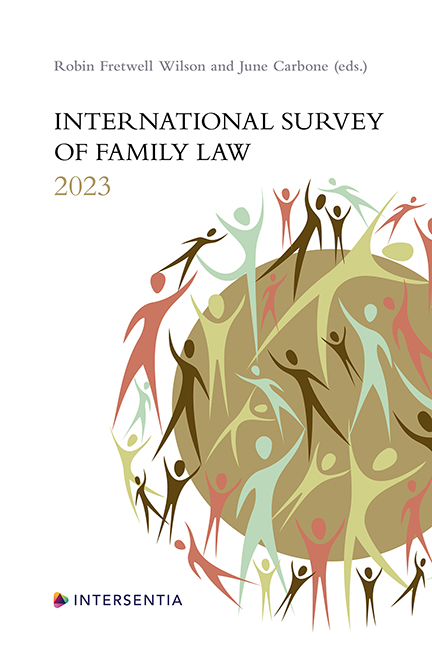Scotland Incrementalism and Compromise in Reforming Child and Family Law
Published online by Cambridge University Press: 03 April 2024
Summary
Résumé
Sans surprise – et comme dans beaucoup d’autres États – le droit écossais contemporain de l’enfance et de la famille diffère, parfois assez radicalement, du droit tel qu’il était il y a un demi-siècle. Cet article se concentre sur l’évolution de l’appréhension par le droit des relations intimes entre adultes pour lesquelles la réforme du droit a suivi une trajectoire claire : le système juridique reconnait un plus large éventail de relations et a diversifié les fondements juridiques possibles. Le présent texte examine l’évolution de la loi en s’interrogeant sur les raisons qui ont motivé les différentes réformes et sur la manière dont le processus a fonctionné– un exercice qui peut éclairer ceux qui s’occupent des futures réformes du droit de l’enfance et de la famille.
INTRODUCTION
Given the enormous sociopolitical developments of the last 50 years, it would be astonishing – and very disappointing – if the law governing children and families had not changed in that time. Thus, it is no surprise to find that, as in many other jurisdictions, contemporary Scots child and family law differs, sometimes quite radically, from the law as it was half a century ago.
That reform of the law has taken place in the context of another major change, with a federal system of government being adopted across the United Kingdom (UK). For Scotland, this means that the Scottish Parliament sits in Edinburgh and legislates on ‘devolved matters’, while the United Kingdom Parliament continues to sit at Westminster, and retains jurisdiction for Scotland on ‘reserved matters’. Most of child and family law is devolved, although some matters that impact on it are reserved to Westminster. In addition, even where an issue is devolved to the Scottish Parliament, it may authorise the UK Parliament to legislate for Scotland, and it has, on occasion, done so.
While Scotland always had its own system of family law, distinct from that operating in other parts of the UK, the creation of a separate Scottish Parliament gave more time for legislation to be passed than had been possible at Westminster. It was also believed that having a legislature within the jurisdiction might enable the law to reflect the will of the Scottish people better than had been the case previously.
Moving beyond the domestic sphere, a range of regional and international treaties have had an impact on Scots law.
- Type
- Chapter
- Information
- International Survey of Family Law 2023 , pp. 179 - 198Publisher: IntersentiaPrint publication year: 2023

